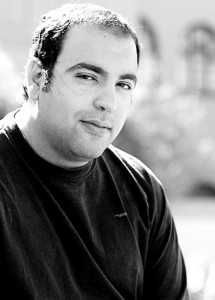
Upon returning from a two-week trip abroad, the level of hatred towards the Muslim Brotherhood that I found in every person I spoke to is unprecedented and shocking. From the moment I boarded the plane in New York until I left the airport in Cairo there was a constant theme to every small talk conversation I engaged in, from the air stewardess to the customs official: a complete loss of patience and lack of any kind of compassion towards the Brotherhood and their supporters. The continued marches, the sieges of neighbourhoods and the blockage of roads on daily basis during Ramadan, a month during which any street activity during is unacceptable to the general population, has unleashed the inner fascist in many Cairenes.
A political solution may be sought out by the political leadership, but many are openly wondering in private conversations and in the media why more extreme measures are not being implemented, especially after they responded to Defence Minister General Abed Al-Fatah Al-Sisi ‘s call to authorise the armed forces to “fight terrorism”. One has to wonder, yet again, how national reconciliation will ever be achieved politically when there is so little appetite or backing for it on the social level.
Regular tourism may be on hold, but political tourism is at an all-time high. Never in the history of Egypt have there been so many high-profile international political visitors in such a shot span. Egypt had Lady Ashton visiting, then an US delegation, then a German delegation, all looking to visit Morsi in his incarceration, which has garnered jokes that maybe we should start charging other countries a visitation fee to recoup losses from our disappearing tourism revenue. Since the US declared that what happened wasn’t indeed a coup, there has been a fundamental change in the nature of visits, more towards exploring the new state of play and setting up the foundation for future relationship with post-Brotherhood Egypt, which has brought out the big players.
At this very moment we have a US Senate delegation lead by John McCain, the UAE foreign minister and the Qatari foreign minister all in the country at the same time, all talking with the interim government. To what end, no one knows, but one can imagine that there are two issues on the agenda: The recalibration of diplomatic relationships between those three countries and Egypt, and finding a reconciliatory peaceful solution to the current crisis. Of all the players, the one that will have the hardest time will be the Qatari foreign minister, especially with Egyptians still viewing Al-Jazeera as a Brotherhood mouthpiece. Best of luck to him if he attempts to engage in the usual fare of pay check diplomacy; it won’t come cheap.
Meanwhile, in Egyptian social media, there has been two notable character assassination campaigns for the past two days: ElBaradei and rumoured future US Ambassador Robert Ford. ElBaradei is facing a hate campaign for wanting to stick to a peaceful resolution to the Brotherhood crisis, to the point that he now faces accusation of being an “undercover Brother”, but he has been quick in responding to this campaign, yet so far it hasn’t been very successful: even his biggest enemies are adopting the wait and see approach, given the sensitivity of the current situation. No one is giving Robert Ford the same courtesy.
Ford is supposedly coming to replace arguably the most hated US ambassador of all time, Anne Patterson, which should be challenging enough, if it weren’t for the fact that he is the last US Ambassador to Syria. If people interpreted sending Anne Patterson, the former ambassador to Pakistan, as a signal of the direction the US sees Egypt heading, you can imagine how they would feel towards an ambassador coming from Syria. Immediately accusations flared that not only was Ford instrumental in setting up “The Free Syrian Army” and inflaming the Syrian civil war, but that he is sent to Egypt on a “similar mission”.
While the accusations are outlandish, perception is becoming reality in countries obsessed with conspiracy theories like ours, especially when a trusted journalist like Yousri Fouda sends out a tweet “warning all of Egypt of that man before he becomes the next US Ambassador.” Whether sending him here was conspiracy or coincidence, the campaign has been so successful, that Ford’s reputation has been obliterated here before he can even begin. The US now can choose to appoint him, and thus expecting him to work while facing the task of not only neutralising the Patterson baggage but also clearing his own reputation, or simply choose someone else to replace Patterson who will not be as controversial. And in case you are wondering who wouldn’t be, well, someone like previous Ambassador to Egypt and current Ambassador to Turkey Francis J. Ricciardone would do the trick at this very moment. Better yet, call him up.




